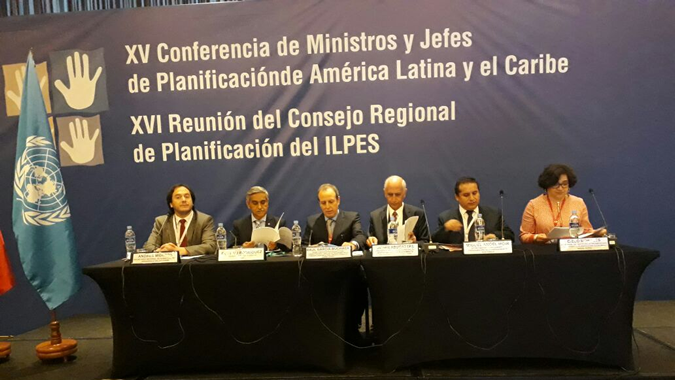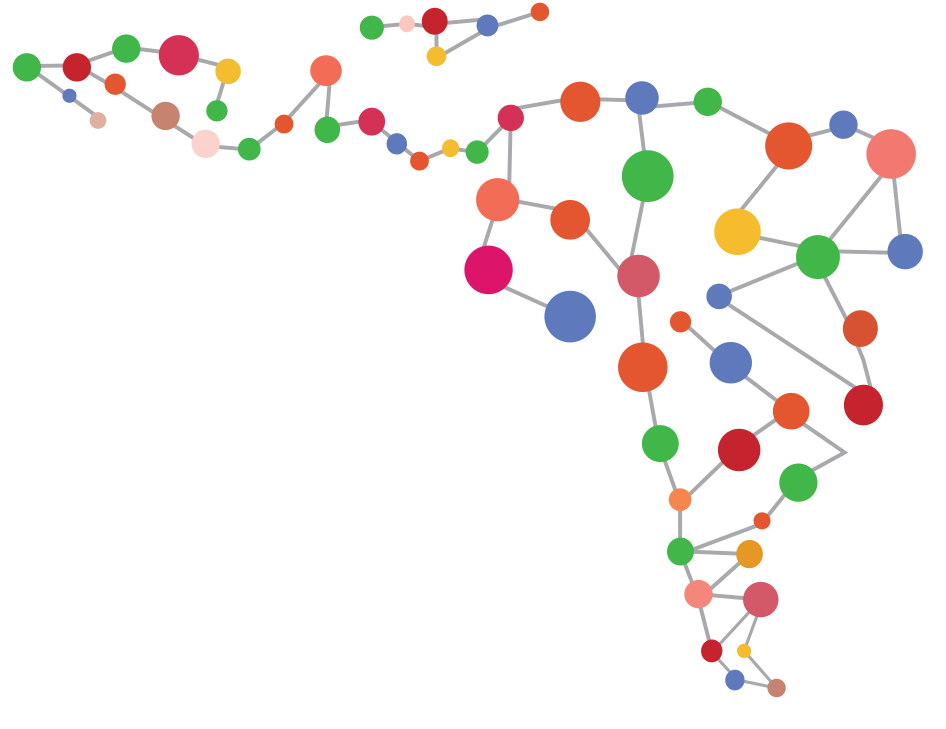Latin America and the Caribbean Reaffirms the Importance of Planning as a Means to Implement the 2030 Agenda
Work area(s)
In the framework of the XVI Meeting of the Regional Council for Planning, which took place in Peru, ECLAC launched the Regional Observatory on Planning and the Plan Barometer – two tools for improving planning in the region.

The countries of Latin America and the Caribbean reaffirmed today the importance of development planning as a means to implement the 2030 Agenda in the region, during the XVI Meeting of the Regional Council for Planning held in Lima, Peru.
The biennial gathering was inaugurated by Javier Abugattás, Chair of the Board of Directors at Peru’s National Center for Strategic Planning (CEPLAN); Miguel Ángel Moir, Guatemala’s Secretary for Planning and Programming; Andrés Mideros, Ecuador’s National Secretary of Planning and Development; and Raúl García-Buchaca, Deputy Executive Secretary for Administration and Program Planning of the Economic Commission for Latin America and the Caribbean (ECLAC).
In its resolutions, the Council – an intergovernmental subsidiary body that orients the activities of ECLAC’s Latin American and Caribbean Institute for Economic and Social Planning (ILPES) – asked the organization to continue its applied research, technical cooperation and advice and training related to development planning, public administration and the incorporation of the 2030 Agenda and the SDGs into national development plans.
During the meeting, which was attended by the representatives of 16 countries in the region, participants approved a report on the activities of ILPES during the 2015-2017 period that was produced by its Director, Cielo Morales. They also chose Peru as Council President for the next period and elected the Dominican Republic as the site for the next meeting of the Council’s Presiding Officers, which will take place during the second half of 2018.
In the framework of the gathering, ECLAC presented the document Development Planning in Latin America and the Caribbean: Approaches, Experiences and Perspectives, which researches and examines planning practices in nine countries of the region: Argentina, Brazil, Chile, Colombia, Cuba, the Dominican Republic, Ecuador, Guatemala and Mexico.
The United Nations regional commission also launched the Regional Observatory on Planning, a space for analysis, information and the collective construction of knowledge for governments, academia, the private sector and civil society regarding development planning in Latin America and the Caribbean.
In addition, it released the Plan Barometer, a tool that allows for characterizing instruments, processes and systems related to development planning.
In a recorded message shown at the start of the meeting, Alicia Bárcena, ECLAC’s Executive Secretary, stressed that broadening cooperation is essential for achieving the Sustainable Development Goals.
She recalled that the Council for Planning came into being as an advisory body to lead the programs of ILPES and that today, when the world has changed and gotten more complex, “the mission of strengthening capacities to face these new challenges to development through planning and public administration is more relevant than ever.”
In the framework of the XVI Meeting of the Regional Council for Planning, the XV Conference of Ministers and Heads of Planning of Latin America and the Caribbean also took place, on October 11 in Lima.
More information at:
Related event
Sixteenth Meeting of the Regional Council for Planning
La XV Conferencia de Ministros y Jefes de Planificación de América Latina y el Caribe y la XVI Reunión del Consejo Regional de Planificación (CRP) del Instituto Latinoamericano y del Caribe de…
Related content

Countries of the Region Call for Thinking of Planning as a Space Where Equality and Sustainability Converge
ECLAC’s XV Conference of Ministers and Heads of Planning of Latin America and the Caribbean was inaugurated today in Lima, Peru.
Related link(s)
Country(ies)
- Latin America and the Caribbean
Contact
Public Information Unit
- prensa@cepal.org
- (56 2) 2210 2040
